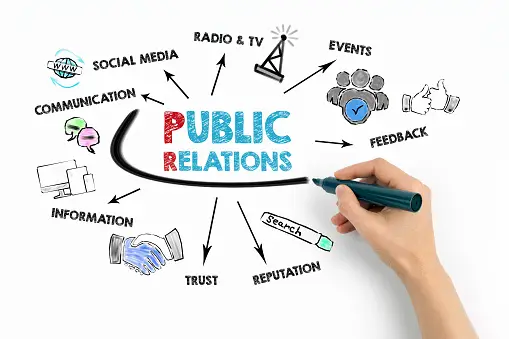In today’s interconnected world, the relationship between businesses and charities has become increasingly important. Many companies seek to align themselves with charitable causes not only for the benefit of society but also as part of their corporate social responsibility (CSR) efforts. However, navigating the landscape of charity partnerships can be complex, requiring careful planning, strategic communication, and effective execution. This is where public relations (PR) firms can play a crucial role. In this comprehensive exploration, we delve into the ways PR firms can assist in forging and enhancing charity partnerships, leveraging their expertise to create mutually beneficial collaborations that make a meaningful impact on society.
1. Introduction to Charity Partnerships
Before delving into the role of PR firms, it’s essential to understand the significance of charity partnerships for businesses. In an era where consumers are increasingly conscious of social issues, aligning with a charitable cause can enhance a company’s reputation, build trust with customers, and differentiate it from competitors. Charity partnerships also provide opportunities for employee engagement, fostering a sense of purpose and pride within the organization. However, forming successful charity partnerships requires careful planning and strategic communication to ensure authenticity and maximize impact.
2. The Role of PR Firms in Charity Partnerships
PR firms bring a wealth of experience and expertise to the table when it comes to managing communications and building relationships. Here are some ways they can assist in charity partnerships:
Strategic Planning:
PR firms can help businesses identify suitable charitable causes that align with their values, brand identity, and target audience. They conduct thorough research to assess the credibility and impact of potential partners, ensuring alignment with the company’s objectives.
Communication and Messaging:
Effective communication is key to the success of any charity partnership. PR firms craft compelling narratives that resonate with stakeholders, highlighting the shared values and goals of the business and the charity. They develop messaging strategies tailored to different channels and audiences, ensuring consistency and authenticity in all communications.
Media Relations:
PR firms leverage their relationships with media outlets to amplify the reach and visibility of charity partnerships. They develop press releases, organize press events, and pitch stories to journalists, generating positive coverage and raising awareness of the partnership and its impact.
Digital Marketing and Social Media:
In today’s digital age, social media platforms offer powerful tools for engaging audiences and driving awareness. PR firms develop creative content and manage social media campaigns to promote charity partnerships, encouraging participation and fostering community engagement.
Crisis Management:
Despite careful planning, unexpected challenges may arise during the course of a charity partnership. PR firms are adept at managing crises and mitigating reputational risks, providing guidance and support to navigate sensitive issues and maintain trust with stakeholders.
3. Case Studies: Successful Charity Partnerships
To illustrate the impact of PR firms in facilitating charity partnerships, let’s examine some real-world examples:
a. Company A & Charity X:
With the assistance of a PR firm, Company A partnered with Charity X to launch a fundraising campaign aimed at supporting underprivileged children’s education. Through strategic messaging and media outreach, the campaign garnered widespread attention, surpassing its fundraising goals and generating positive brand exposure for Company A.
b. Company B & Nonprofit Y:
Company B engaged a PR firm to enhance its partnership with Nonprofit Y, which focused on environmental conservation. The PR firm developed a comprehensive communication strategy, leveraging social media influencers and organizing community events to raise awareness about environmental issues. As a result, Company B saw a significant increase in brand loyalty and consumer trust.
4. Best Practices and Considerations
While PR firms can be invaluable partners in charity initiatives, several best practices and considerations should be kept in mind:
Authenticity:
Authenticity is paramount in charity partnerships. PR firms should ensure that the partnership aligns with the company’s values and that its intentions are genuine, avoiding the perception of “cause-washing” or insincerity.
Transparency:
Open and transparent communication is essential throughout the partnership, from the initial planning stages to the execution and evaluation. PR firms should provide stakeholders with clear and accurate information, addressing any questions or concerns openly and honestly.
Long-Term Engagement:
Building sustainable charity partnerships requires ongoing commitment and engagement. PR firms should work closely with businesses and charities to develop long-term strategies that create lasting impact and foster meaningful relationships with stakeholders.
Evaluation and Impact Measurement:
Measuring the success and impact of charity partnerships is critical for continuous improvement and accountability. PR firms should establish key performance indicators (KPIs) and evaluation metrics to assess the effectiveness of their efforts and identify areas for growth and refinement.
Conclusion
In conclusion, PR firms can indeed play a significant role in facilitating and enhancing charity partnerships. By leveraging their strategic expertise, communication skills, and industry connections, PR firms can help businesses forge authentic and impactful collaborations with charitable organizations. Through careful planning, effective communication, and ongoing engagement, these partnerships have the potential to drive positive change and make a meaningful difference in society.

